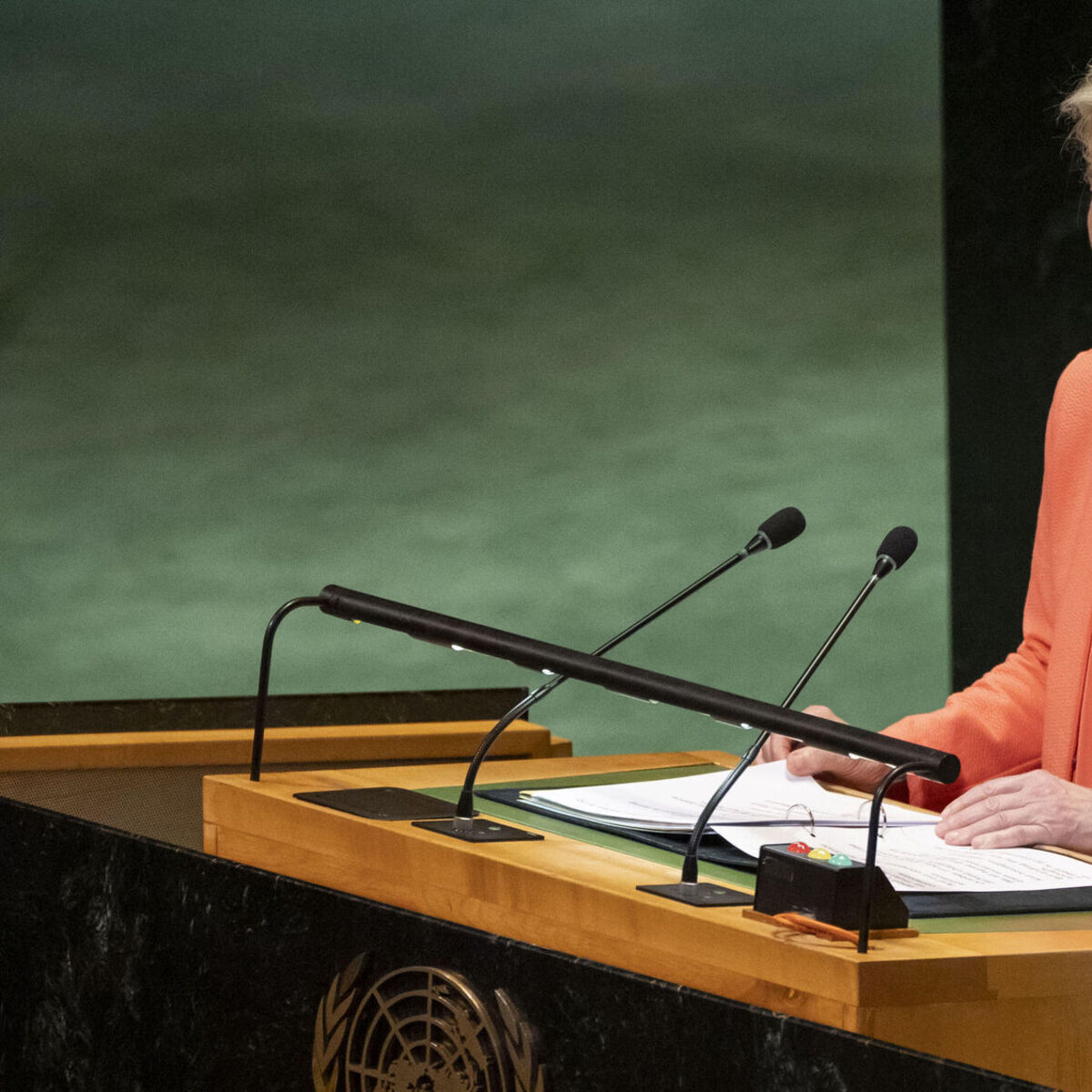Copyright pakobserver

INTERESTINGLY, the General Debate of the UN General Assembly (UNGA)’s 80th provided an ideal launching pad for Xi’s Global Governance Initiative (GGI) because of emerging socio-economic, geopolitical and geo-strategic bitter realities around the globe marginalizing the scope of a fair, free, just, open, transparent socio-politico democratic world governance order. Grippingly, the recently concluded 80th session of the UNGA was dominated by disagreements, disputes and the US constant absence from international organizations. Its refusal to make any payments to the regular budget created deepening divisions among the nations, highlighting the increasing deficit in global governance and urging rigorous structural reforms and improvement. Discernibly, the GGI provides practical solutions to pressing global challenges, including sovereign equality, rule of international law, stronger multilateral institutions and equitable access to digital technologies. The announcement of the GGI seems to be perfect timing, covering all aspects of forming a just, fair, open, transparent, equal and cooperative global governance system. Its core concepts of peaceful persuasion of sovereign equality, adherence to the rule of law, observance of multilateralism, advocacy of people-oriented governance and focus on action orientation are badly missing at the international stage dominated by the law of the jungle, unilateralism, economic protectionism, ongoing trade wars and, last but not least, the whims and wishes of the US. Xi’s GGI is the guarantor of these core concepts of peaceful co-existence, dialogue, diplomacy and development, along with multiculturalism and multilateralism, creating win-win situations for all. Hence, the GGI stands against Cold War mentality, imperialism, and racial superiority, promoting universal equality, human dignity, constructive economics, and cooperative globalization. Soon after its launch, Pakistan endorsed the initiative, pledging full support for its implementation. Ongoing genocide in Gaza, rejection of Pakistan’s Climate Justice Fund proposal, the unresolved issue of India-occupied Kashmir, and Indian RAW’s role in Balochistan compelled Pakistan to embrace the GGI. By aligning with China and the Global South, Pakistan seeks sustainable prosperity, equal treatment, and the realization of socio-economic progress within a just and cooperative international governance framework. Paradoxically, the UNGA 2025 was dominated by two different concepts. One supported the continuation of hegemony and unilateral action, treating multilateral mechanisms as mere tools of grabbing more and more power. Contrary to this, the other stood on the path of genuine multilateralism and multiculturalism, grounded in sovereign equality, solidarity and cooperation, reflecting that outdated governance models can no longer address global challenges. Additionally, the serious underrepresentation of the Global South, attrition of authoritativeness and urgent need for greater effectiveness through systemic reforms in global governance give the GGI great magnetic force to heal the wounds of struggling communities striving for a better life. A comparative study of UN history reveals that over the past 80 years, the UN has adopted more than 40,000 resolutions, developed a framework for global governance, and contributed to maintaining peace, yet the goal of an equitable world remains distant. This reality underscores the urgent need to build consensus on peace, democracy, development, cooperation, and win-win outcomes through peaceful coexistence, collective security, democratization of international relations, and dispute settlement. In light of repeated violations of international law and assaults on sovereignty and territorial integrity, Xi’s Global Governance Initiative (GGI) offers a timely framework to restore declining economic globalization, strengthen international cooperation, revive constructive competition, and expand shared socio-economic benefits, providing hope to struggling communities across the world. So, the GGI is the new roadmap for securing and further strengthening universal justice and the modern Bible of equality and cooperation among international countries, communities and enterprises. Due to the ongoing trade and tariff wars, US withdrawal or structural absence from various international organizations, brutal denial of rule of law and visible helplessness of the Global South to stop the ongoing genocide and bloodbath in Gaza, the majority of the international community has been promoted to immediately accept the GGI. The expanded role, participation and strengthening of the Global South would try to readjust the existing world governance towards an open, free, equal and transparent destination. In summary, it appears that Xi’s global initiatives of development, security, civilization and now governance have one DNA originating from ancient Chinese wisdom and values of generosity, positivity, productivity, participation and peaceful persuasions. All four global initiatives are integrated, interactive and interrelated, supporting humanity, human values and human services through dialogue, constructive neutrality and development. The GGI disowns the law of the jungle and institutionalizes the rule of law, which will ultimately gear the international community towards a greater comfort zone of sovereignty, equality, multiculturalism, unilateralism and justice at the global level. Unfortunately, world peace and the pace of development have been undermined by a whimsical style of governance, but Xi’s initiatives on development, security, civilization, and governance aim to create a fairer world free from fear, power politics, economic blackmail, and marginalization. Central to this vision, the Global Governance Initiative (GGI) emphasizes innovation and institutional reform to enhance the effectiveness of global systems and safeguard common interests. During a meeting with UN Secretary-General Antonio Guterres at the UNGA’s 80th session, Chinese Premier Li Qiang reaffirmed China’s strong commitment to implementing the GGI and promoting a more just and equitable international governance framework. Definitely, the GGI has become the voice of the hearts of the Global South and a beacon of hope for underdeveloped countries to enhance their effective participation in the existing global governance, protecting their economic sovereignty, political stability and social harmony—badly damaged by the ongoing Gen Z-sponsored phenomena around the globe. —The writer is President, the Centre for Knowledge and Public Policy, Regional Expert: China, CPEC, BRI & World Affairs. (mehmoodulhassankhan@yahoo.com)



